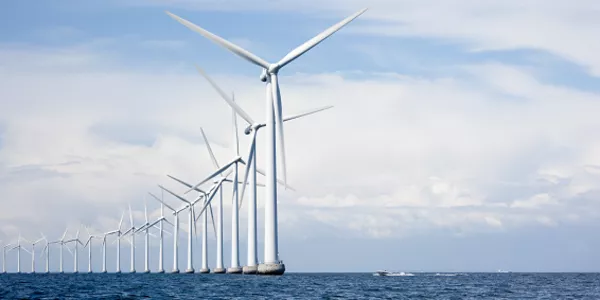
Three themes driving a paradigm shift in commodity finance
As flows of physical commodities evolve at a quickening pace, commodity finance banks must become increasingly sophisticated. Viewpoint by Ludivine Labarre, Global Head of Trade Commodity Finance at Societe Generale
When the history of the commodity trade comes to be written, the 2020s will be viewed as a time of fundamental evolution in the physical flows of commodities around the world. After a long period of steadily increasing commodity flows, a mix of geopolitical instability and the energy transition are accelerating a major shift in the pattern of which countries provide what commodities to whom.
This accelerating evolution in the flows of physical commodities across the globe also requires greater sophistication of commodity trade finance. Banks must now operate across a wider range of commodities and help their clients to raise environmental, social and governance (ESG) standards, all while having the flexibility to help clients through acute crises.
Three broad themes are behind the change, playing out across different types of commodities in different ways – whether energy, metals & minerals, soft or agricultural. While the longer-term themes are fairly predictable, there is much less certainty about what happens in the short term, as illustrated by the current instability and liquidity cracks in some energy markets.
1. Increased price volatility
The first theme is the high and volatile energy prices evident since the beginning of the Covid-19 pandemic in 2020, and especially since Russia’s invasion of Ukraine in 2022. In the last 12 months, soaring European gas prices have led to a liquidity crunch and a wave of margin calls. Commodity trading houses have responded by cautiously optimizing their liquidity, increasing cash buffers and introducing harsher stress tests. Being a leading commodity finance bank, Societe Generale has been working with the rest of the commodity banks, actively helping its clients to weather these liquidity crises. While a difficulty in a gas pipeline or lack of regasification capacity could cause further difficulties, as alternative sources of renewable energy become available later in the 2020s, it’s likely that price volatility will ease.
2. Energy and food security
Deglobalization related to geopolitical friction has made food and energy security a priority for governments in Europe and elsewhere. While the trend towards deglobalization has been happening for several years, it has been amplified by Covid-19 and the Ukraine war. Deglobalization, the pandemic and the war have interrupted supply chains, disrupting supplies of vital commodities and driving price inflation. This has highlighted the key role of commodity trading houses and their economic value for ensuring the steady supply of commodities. In the medium term, it’s likely that security difficulties will ease as countries find new suppliers for some commodities, often closer to home. In terms of energy, security problems are forcing a near-term switch to LNG, ahead of greater renewable energy usage later in the decade.
3. The ESG transition
Whether for commodities trade finance houses, processors, exporters or distributors, the ESG transition is accelerating across the commodities value chain. Not only is ESG firmly embedded in businesses’ strategy roadmaps, but also they are increasingly making specific improvements like recycling of metals or ensuring good working conditions in supply chains. Societe Generale’s experts are helping clients to design their ESG journeys, while widening the scope of its own activities into cleaner commodities. The bank is also helping to identify opportunities for cutting the carbon footprint of transactions, as well as creating incentives for improvements such as reductions in scope 1 and 2 carbon emissions.
For instance, in 2021 Societe Generale was one of the banks that arranged the refinancing of a sustainability-linked revolving credit facility for Sucre et Denrées, the soft commodity trading group, which set key performance indicators for sustainability goals. Good performance would be rewarded by a donation from the banks to a charitable foundation. Similarly, in 2022 Societe Generale acted as joint sustainability coordinator on a borrowing facility for Interfood, a leading independent trader of dairy products. The facility is linked to a suite of ESG-related KPIs.
Underlying these themes affecting commodity flows is the digitalisation of commodity finance. Founded in 2018, with Societe Generale as a shareholder, Komgo is a digital platform that gained popularity during the pandemic when transactions were often interrupted by staff absences and slow delivery of physical documents in some countries. Not only does Komgo make commodity finance more efficient in difficult times, but also it increases the routine security of transactions and streamlines their administration.
As a leading commodity trade finance bank, Societe Generale is well placed to help its clients in these changing times. The bank continues to provide tailor-made financing and risk management solutions to support sourcing, storage, transport, processing, and marketing across all commodities sectors. Notably, the commodity trade finance team manages the relationships with clients, giving it a deep understanding of their needs.
Looking to the longer-term, this understanding will become still more important, as the globe undergoes a fundamental change in suppliers of commodities and even the nature of commodities, as for instance hydrogen replaces hydrocarbons. It will be a time when commodity finance banks need even deeper expertise, spanning value chains and a broader scope than ever.



